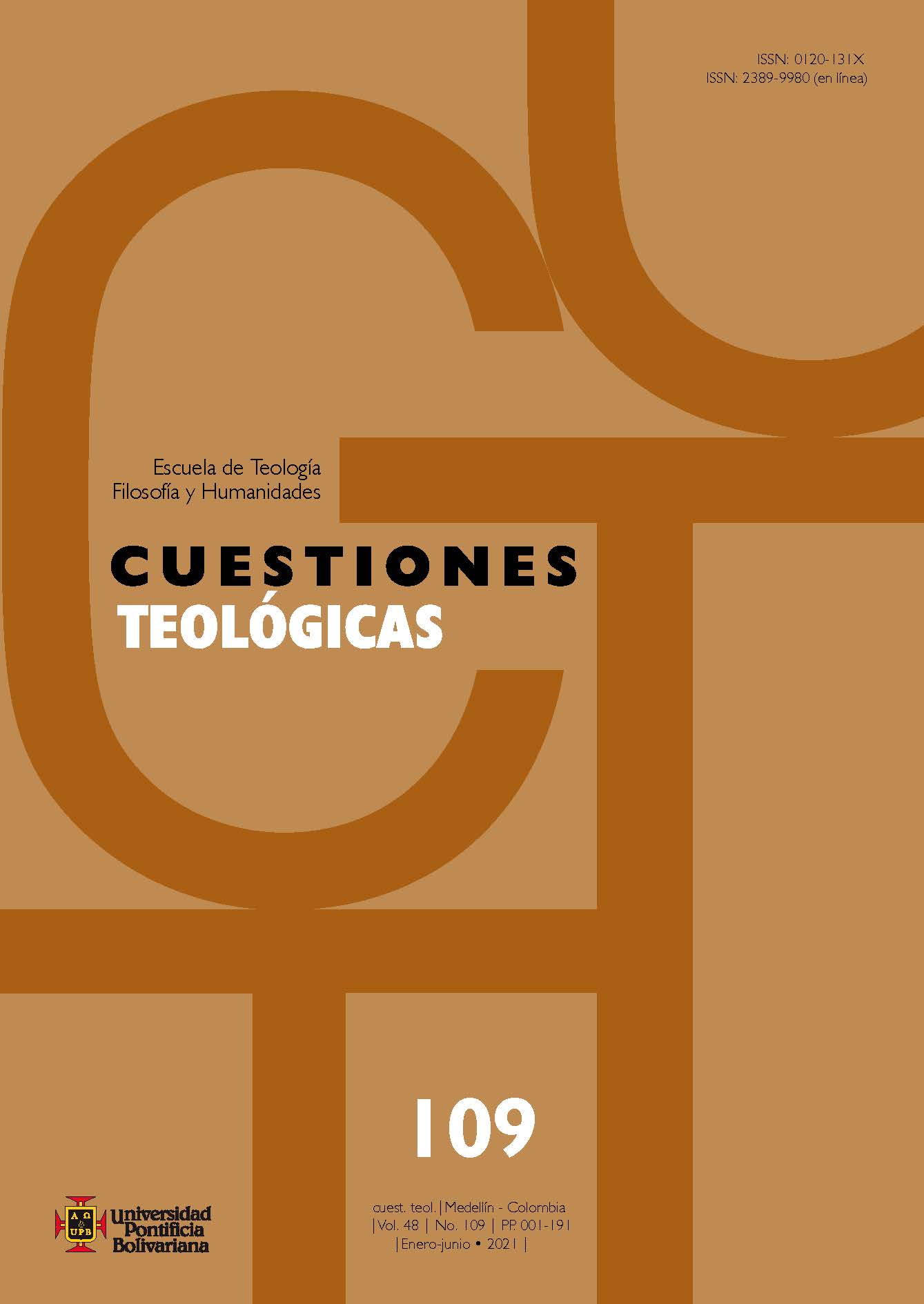Considerations about God for our Time
Main Article Content
Abstract
The article addresses, in five points, some considerations regarding some of the challenges faced when talking about God in our time. The tension between the fidelity of the message and paying attention to the new demands of our time is a concern that is present across it. The aim of the article is to warn against some aspects we must consider in our language and approaches. The latter determine the conclusions, and because of that we might reach standardized answers, despite of how creative our way is. Thus, though our approaches might be traditional, if we dare explore new spaces, it is likely that we might find novel challenges. Likewise, the article considers some remarkable moments of the magisterium of Pope Francis, who has expressed some concerns regarding an ideological, functional, and clerical paralysis of the Gospel. The article begins with the difficulty of admitting the fidelity of a God, who appears to be elusive and distant. Then, it considers truth from the standpoint of two risks: understanding it as solid, unmovable, and complete; or seeing it as dynamic, ungraspable, and ethereal. Third, it addresses the issue of the truth of God, as a being that exists in communion with humanity and that persists in its presence. This mystery of presence and communion leads to the issue of the persona and difference in God as foundation both for dialogue and tolerance. Finally, it warns against the always latent logic of idolatry.
References
Albado, O. C. (2020). Teología y pandemia: hacia un cambio de modelos culturales. Teología, 57(131), 29-36. Recuperado de https://erevistas.uca.edu.ar/index.php/TEO/article/view/3036
Azcuy, V. R. (2020). El desafío inclusivo de la espiritualidad desde Evangelli gaudium y Fratelli tutti. Poliedro: Revista de la Universidad de San Isidro, 3(1), 284-293.
Bloom, H. (2006). Jesús y Yahvé: los nombres divinos. Buenos Aires: Taurus.
Bons, E. y Legrand, Th. (Ed.) (2011). Le monotheísme biblique: évolution, contextes et perspectives. París: Les Éd. du Cerf.
Bulgakov, S. (2014). El Paráclito. Salamanca: Sígueme.
Dreher, M. (2017). Redescubriendo la teología de la cruz de Martín Lutero en el contexto de la teología de la liberación. Revista Espiga, 16(33), 61-76. https://doi.org/10.22458/re.v16i33.1764
Fernández Eyzaguirre, S. (2013). Arrio y la configuración inicial de la controversia arriana. Scripta Theologica, 45(1), 9-40. Recuperado de https://ixtheo.de/Record/1640857931
Ferrara, R. (2005). El misterio de Dios: correspondencias y paradojas. Salamanca: Sígueme.
Feuerbach, L. (1956). Das Wesen des Christentums: Vollstëndige Ausgabe. Berlín: Akademie Verlag.
Francisco. Vaticano II. Vangelii gaudium. Nov 4 de 2013. Recuperado de http://www.vatican.va/content/francesco/es/apost_exhortations/documents/papa-francesco_esortazione-ap_20131124_evangelii-gaudium.html
Francisco. Vaticano II. I Jornada Mundial de los Pobres Domingo. Nov 19 de 2017. Recuperado de http://www.vatican.va/content/francesco/es/messages/poveri/documents/papa-francesco_20170613_messaggio-i-giornatamondiale-poveri-2017.html
Francisco. Vaticano II. 51 Jornada Mundial de la Paz. En 1 de 2018. http://www.vatican.va/content/francesco/es/messages/peace/documents/papa-francesco_20171113_messaggio-51giornatamondiale-pace2018.html
Francisco. Vaticano II. Fratelli tutti. Oct 3 de 2020. http://www.vatican.va/content/francesco/es/encyclicals/documents/papa-francesco_20201003_enciclica-fratelli-tutti.html
Greshake, G. (2001). El Dios uno y trino: una teología de la Trinidad. Barcelona: Herder.
Heidegger, M. (1988). Identidad y diferencia. Anthropos Editorial.
Kasper, W. (2013). El Dios de Jesucristo. Santander: Sal Terrae.
Kusch, R. (2000). Obras completas (t. 1). Rosario: Fundación Ross.
Marion, J. L. (2010). Dios sin el ser. Pontevedra: Ellago.
Meyendorff, J. (1989), The role of Christ, I: Christ as saviour in the east. Christian Spirituality, 1, 231-252.
Moore, M. (2020). De dioses y pandemias. En Covid-19: Sociedad Argentina de Teología (pp. 78-84). Buenos Aires: Sociedad Argentina de Teología.
Müller, G. L. y Gutiérrez, G. (2005). Del lado de los pobres: teología de la liberación. Lima: Instituto Bartolomé de las Casas.
Noemi, J. (2007). En la búsqueda de una teología de los “signos de los tiempos”. Teología y Vida, 48(4), 439-447. http://dx.doi.org/10.4067/S0049-34492007000300007
Retamozo, M. (2007). Enrique Dussel: hacia una filosofía política de la liberación. Notas en torno a 20 tesis de política. Utopía y Praxis Latinoamericana, 12(36), 107-123. http://ve.scielo.org/scielo.php?script=sci_arttext&pid=S1315-52162007000100007
Ricoeur, P. (1976). De la interpretación a la traducción. En Exégesis y hermenéutica (pp. 337-365). Madrid: Cristiandad.
Sobrino, J. (2007). El Jesús histórico nos llama al discipulado en América Latina y el Caribe. Theologica Xaveriana, 57(161), 127-157. https://www.redalyc.org/pdf/1910/191017410007.pdf
Tomichá Charupá, R. (2019). Diez consideraciones para una pneumatología cristiana en perspectiva indígena. Teología, 56(129), 117-151. https://erevistas.uca.edu.ar/index.php/TEO/article/view/2414/2238






